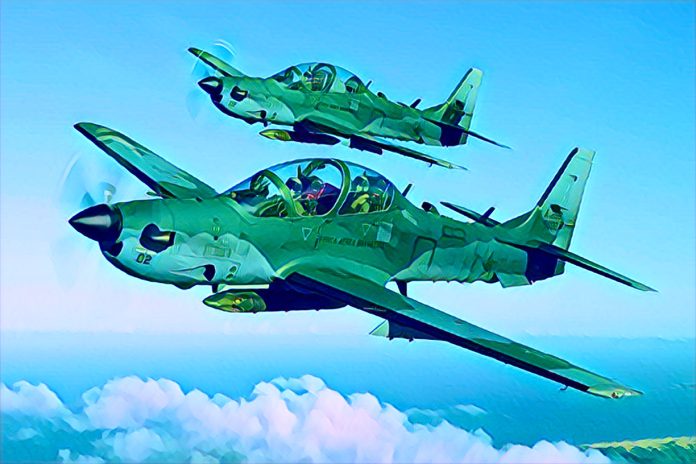KEY POINTS
-
Nigeria approved a $618 million loan to procure six attack jets and ammunition to combat insecurity.
- The funds aim to boost national defense, targeting persistent threats from armed groups.
- Insecurity has cost Nigeria billions in lost revenues and investor confidence.
The recent move by Nigeria to borrow $618 million to buy attack jets and ammunition is evidence of a problem that has persisted in the country for years, insecurity. The loan granted by the cabinet to purchase six attack jets and other weapons is an indication of the level of insecurity in Nigeria. Although this measure shows the government’s concern in dealing with the continued acts of armed groups, it also raises issues of the country’s economic health and future growth.
Understanding the insecurity crisis
According to Reuters, Nigeria currently experiences a range of security threats and risks including Boko Haram in the North Eastern region, armed banditry, kidnapping, and separatism across the country. Insecurity has caused loss of lives, disrupted education, and displacement of people from their homes. The economic cost is equally appalling as these threats reduce the country’s resource endowment and discourage foreign investors. The oil-endowed country has witnessed some of its most important sources of income threatened, forcing the government to look for other ways of funding security activities.
This newly approved loan for defense purposes shows a lot of effort to reclaim back and safeguard citizens. However, it also brings up important questions: To what extent will these military investments reduce unrest, and is this strategy feasible bearing in mind the fiscal constraints of the country?
The economic impact of security loans
The Nigerian economy has experienced some shocks including high inflation rates, naira falling in value, and large debt burdens. The debt to GDP ratio of the country has been on the rise and more so the public debt has been used to finance the budget deficits. In this regard, delegting $618 million to military expenditure is questionable. Critics have said that, although security is important, the costs of such debt-fueled defense spending could put a squeeze on the government’s budget for other important sectors such as health, education, and infrastructure.
This is further complicated by the fact that Nigeria depends so much on oil revenue. Over the last decade, oil price volatility and production issues have constrained national income. As debt levels increase, borrowing for defense may strain the capacity to meet other obligations and will decrease the budget set aside for economic changes. Furthermore, loans for defense expenditure are usually non-recurrent; without corresponding productive capital or revenues, they could crowd out future budgets with higher interest costs, thereby destabilizing the nation’s economy in the future.
The strategic importance of security investments
Of course, the economic considerations are all pertinent, but there is an evident need for proper security as well. The selected strategy to invest in attack jets and other complex weapons is designed to enhance the ability of Nigerian forces where they have issues with mobility, reconnaissance, and protection. Security architecture is not only about saving lives but also about making the environment secure enough for business, farming, and foreign investments.
Security investment can also have indirect economic returns if it helps to rebuild confidence in the right areas. For example, fixing areas that are in conflict may lead to local industries growing and more foreign firms coming in. But, security through the procurement of military equipment will not guarantee long-term peace. Intelligence, community relations, and economic development would probably be a better approach to solving the problems of insecurity.
Solutions
Besides, military approaches, Nigeria could enhance community policing and intelligence. Measures that can be taken to prevent future conflict include; Programs that address socio-economic causes of insecurity like employment for youths and education.
Also, collaboration with other countries in sharing information, training and even sharing of resources could go a long way in lessening the costs of security. There might be some benefits of entering into regional security alliances such as those with neighboring West African countries.
Lastly, the Nigerian government can increase the level of disclosure regarding military expenditure to improve accountability. The public would probably support security investments if only they could be assured that the money is well spent and not used to pay for overheads and bloated contracts.
The decision by Nigeria to borrow for defense is a good example of the dilemma of trying to meet the current security needs while at the same time considering future economic stability. It shows that the Nigerian government is concerned with security but the question of what type of economy Nigeria is building remains in the air. To achieve the above, Nigeria’s security policy should embrace socio-economic initiatives, regional cooperation, and good governance in addition to military spending.



